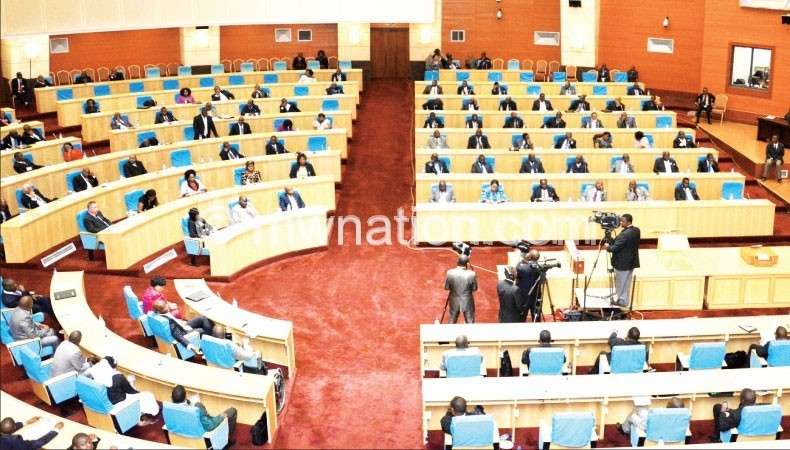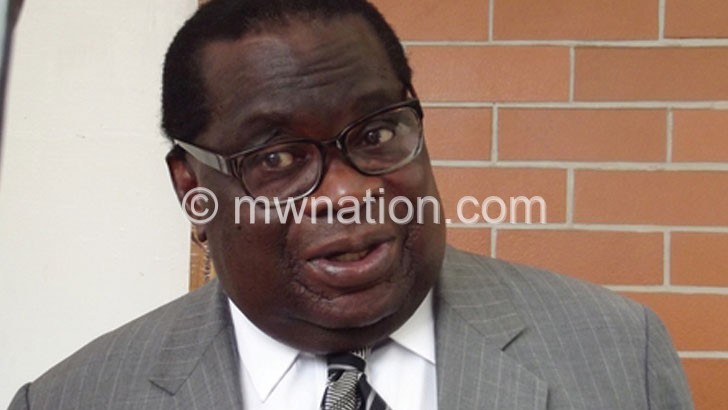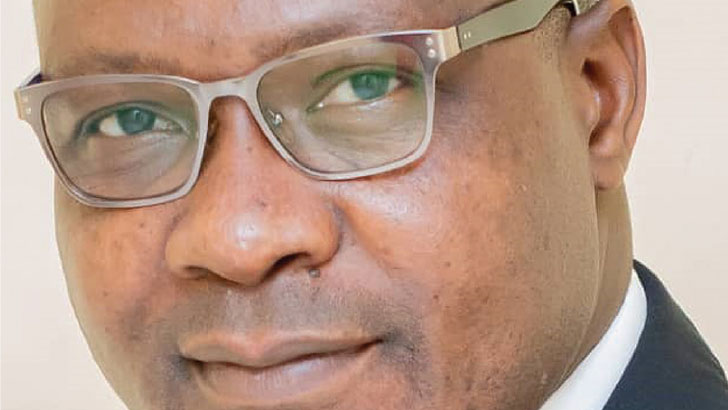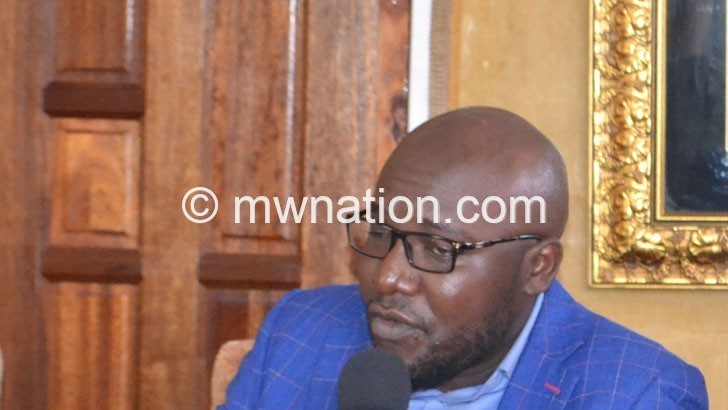The world of mutharikas
President Peter Mutharika’s first two years in office are turbulent —a complete contrast of his brother’s glorious first two years. Rather, Peter’s turbulent first two years are akin to Bingu’s problematic two years of his second term. How can these dynamics help Peter take Malawi out of the current crisis? Writes EPHRAIM NYONDO.
This is not the best of seasons to be President Peter Mutharika.

The economy he is running is stuck in the doldrums. Even his Minister of Finance and Economic Development Goodall Gondwe testifies.
In his Mid-Year Budget Review Statement weeks ago, Gondwe underlined that the economy is still passing through turbulent times.
In what could be seen as a confession of a failed general, Gondwe told Parliament that: “I regret that we have not yet established a stable macro-economic environment in which low inflation and interest rates prevail, and where the variability of the exchange rate is narrow and predictable.”
Meanwhile, political pressure-with continued maize shortages, rising commodity prices and soaring cost of living-continue to pile on President Mutharika to show crisis leadership.
Already, strong calls for the President to resign have been made. But government, though expected, has come out to defend itself.
They have launched a wave of propaganda activities by parading chiefs, some leaders of civil society organisations (CSOs) and self-styled political analysts on state-sponsored broadcaster, Malawi Broadcasting Corporation (MBC), and vehemently attacking and discrediting those deemed critical of the current government.
What is news, though, is not necessarily the combination of the continued falling economy, vast public discontent and government’s intense investment in firefighting and propaganda.
The news, if compared to Bingu’s story of leadership, is the timing. Bingu’s first two years in office, unlike his young brother, were punctuated by an urgent surge and confidence of the economy and, most importantly, a strong public support of government.
He had the media, the academia, the church, critical CSOs and the university students at his back. They-not chiefs, self-styled analysts and some CSOs-fought his war. He, as a result, got saved from the cutlass of impeachment and the plot to shoot down the budget as crafted by the combined forces of the Malawi Congress Party (MCP) and United Democratic Front (UDF).
It was Bingu’s last two years in office that compares well with Peter’s first two years in office. Like Peter today, Bingu’s first two years of the second term were marked by a failing economy, strong public discontent and a government that heavily invested in propaganda and fire-fighting.

Like Peter of today, the nation saw constant faces of chiefs, some local CSOs and self-styled analysts-not the media, the academia, the church, critical CSOs and the university students-defending anything that Bingu was criticised for.
They defended the change of the flag, the bad laws, an attack on the academic freedom, the expulsion of Joyce Banda from DPP, the control of the local currency and the problem of fuel and forex shortage.
What, then, do these political dynamics tell us about Mutharika’s presidency taken from the context of his brother’s story of rise and fall?
Chancellor College political science lecturer Michael Jana agrees that the socio-economic crisis that Malawi is experiencing is a déjà vu of the first two years of Bingu’s second term.
However, he adds, the crises have slightly different dynamics.
“I think the economic crisis during Bingu’s last two years in office was largely caused by his poor policies; while the crisis now during Peter’s era is largely compounded by Peter’s failure to manage an inherited crisis,” he says.
He expounds that Bingu’s second term of office was marked by Executive arrogance. Given the massive popular support that he got in 2009 elections, Bingu became so intoxicated with power to the extent that his rule turned dictatorial and he did not listen to advice, he notes.
For instance, he explains, against the advice of economic experts, he pursued a monetary policy that held the kwacha at artificial levels, and pursued the so-called ‘zero-deficit’ budget when government had no resources to sustain the system.
“This resulted in the crumbling of the system as Malawians suffered in many sectors such as energy sector (no fuel) and shortage of drugs in the health sector,” he says.
On the other hand, Peter’s incumbency, reasons Jana, is a crisis that, in summary, can be attributed to dry spell sand floods in the past one to two years happening in the context of global low commodity prices, freezing of external budget support, massive looting in the public sector, and, of course, poor policies.
“Peter takes responsibility of this crisis in as far as he is the leader who so far has not convinced the nation that he has the capacity to deal with the crisis, especially given that the signs of the crisis were so clear when he was assuming the presidency two years ago,” he says.
On his part, political researcher Joseph Chunga, who also teaches political science at Chancellor College, begins by specifying the key fundamental features that separates Bingu and Peter’s first two years in office.
“Bingu began, in the first place, by clearly telling us how he wanted to govern. He had, among others, a road map on the economy, on international relations, on agriculture and that brought confidence among the people and development partners. Most importantly, Bingu chose to travel his own road, not dictated by other interests. This is why he parted ways with Muluzi and UDF,” says Chunga.
Peter, argues Chunga, began his first term on a flimsy ground.
“He just inherited anything without a fundamental articulation of how he would address the challenges that the country continues to face. Here is a leader who has left the country to the dictates of fate.
“Furthermore, Peter has failed to build his own team; one that could symbolises the reform he is preaching. You cannot talk about change or reform when you still have the same people who were behind earlier political and economic mistakes that continue to haunt Malawians today,” he says.
So what options, then, does Peter have to walk his brother’s first term, not second term?
Chunga says that in the first place, the President needs to redefine and change the image of his government.
“What Malawi urgently need right now is the change of how government is being managed. That, unfortunately, cannot begin to happen if the President continues to surround himself with same old people,” he says.
Jana, on the other hand, says: “In as far as the current crisis is concerned, we are now talking about damage control since the best time to make decisions and act was a year or two ago when the signs of the crisis were clear.”
He adds that in the short-term, Peter needs to exercise crisis management leadership.
“First he needs to take responsibility of the problem, and then take radical steps that must be made public so that he is also seen to be doing something about it and thereby regain people’s confidence,” he says.
Talking about the food shortage, he adds, the radical steps he need to put in place include, but not limited to, radical budget cuts in other non-priority departments including his office and residences and reallocate the resources towards the food sector.
“The resource mobilisation should include sourcing external support. Redistribution of the limited food available is another huge task at hand,” he explains.
Jana also says that in the medium to long term, Peter has a reasonable programme that if implemented well can avert some of these problems-a programme such as the Green Belt Initiative is a case in point. n





